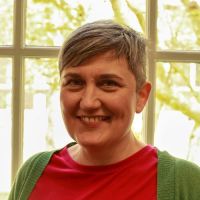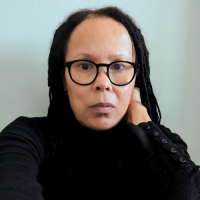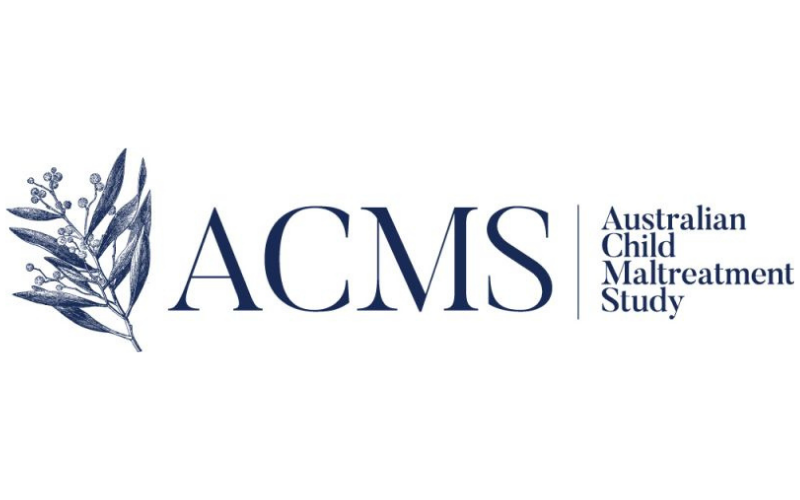About us: our vision
The Centre for Children and Families is dedicated to supporting the positive development for children, and their families, and reducing negative outcomes for those facing challenges and adversities – both here in the UK and around the world. Our interdisciplinary teams of researchers and practitioners work collaboratively and inclusively across all stages of the lifecourse, from examining the long-term impacts of childhood experiences to supporting adults prepare for parenthood. We engage with many different settings, including early education, schools and pupil referral units, health services, as well as cross-cultural contexts.
The Centre for Children and Families:
- Promotes positive and reduces negative experiences and outcomes for children and families by delivering impactful research and practice.
- Supports the development of new researchers and practitioners, improves subject area expertise and evidence base, and enables us to answer pressing societal challenges affecting children and families.
- Builds research and practice network via partnerships with external organisations
- Shares our research and knowledge exchange activities, making it accessible to all.
Our impact on the world
Everything we do at our Centre is focused on improving the lived experiences of children and families, and reducing negative outcomes associated with adversity. Our researchers and practitioners develop evidence-informed programmes that address the issues head-on to help improve outcomes, and contributes to many of the UN Sustainable Development Goals (SDGs), including:
- Good Health and Well-being (SDG3): Research involving adults in Australia about their maltreatment as children in order to understand how this may have led to poorer health in adulthood; running trials of Functional Family Therapy, for those in youth justice or children’s social care; understanding and measuring quality of life of visually impaired children and adolescents
- Quality Education (SDG4): Research on inclusive education and special educational needs and disabilities; gender stereotyping and identifying barriers to girls’ and boys’ educational achievement (also Gender Equality [SDG5])
- Reduced Inequality (SDG10): Research on how negative childhood experiences disadvantage the life chances in adulthood, including our cross-cultural research on how early adversity shapes brain development and developmental outcomes.
- Peace and Justice Strong Institutions (SDG16): Research on bullying, cyberbullying and reducing violence against children has impacted youth policy globally.
- Partnerships to achieve the Goal (SDG17): Engagement with community leaders, children and families across the Royal Borough of Greenwich.
Who we are
An interdisciplinary approach
The Centre for Children and Families benefits from the expertise of a diverse range of researchers, practitioners and external partners. Members specialising in public health, midwifery and nursing work alongside psychologists, neuroscientists, speech and language therapists, community and social workers, historians, educationalists and criminologists. All feel a moral responsibility to support children, young people and families, and all are committed to an inclusive, collaborative and holistic approach, conducting interdisciplinary research that has impact in the world.
Partners
We have forged close working relationships with numerous external partners encompassing a variety of disciplines. These collaborations are often a two-way street, with researchers providing partners with evidence-based advice and information, and in return gaining valuable insights into key current issues faced by those directly working with children, young people and families. Our partners include: the Charlton Athletic Community Trust, HealthWatch Greenwich, Dandelion Time, Greenwich Mencap and other national and community-based NGOs. We also work with local government and other public sector organisations, including the Royal Borough of Greenwich, Kent County Council, NHS trusts and the London Metropolitan Police Service. Among the many higher education institutions with which we work in the UK and worldwide are the University of Córdoba, the University of Johannesburg and the Chinese Academy of Sciences and Hacettepe University. Our overseas collaborators include NGOs and charities working with families and young people in Spain, Chile, South Korea, Malaysia, Uganda, Turkey and South Africa.
Funding
Our centre’s work is supported by, among others, the UK Research and Innovation, Office for National Statistics, the Youth Endowment Fund, National Society for the Prevention of Cruelty to Children, National Institute for Health Research and other charitable and public funding sources.
Our research
A child-centred approach to research
We seek to learn directly from the experiences of children and young people, as well as their families, via a range of quantitative and qualitative age-appropriate methodologies, and share our findings in ways that are accessible to practitioners.
Our research falls broadly under the following themes:
Relationships and education
Our work on dating-related violence in Spanish school, peer bullying, and harassment by teachers helps identify effective strategies for reducing antisocial behaviour.
Peer relationships
Our work in this area focuses on children’s friendships, including developmental aspects of friendship, and bullying, dating violence and other forms of aggression in early childhood and adolescence. Our work on social adjustment and the role of group processes in young children’s bullying behaviour has shaped policy for vulnerable youth globally, and is cited by a number of NGOs, including the Stop Bullying Now Foundation in the Netherlands and Australia’s CREATE Foundation, a national organization that supports children in care.
Online risks
Our researchers work with charities, such as NSPCC and Anti-bullying Alliance, teachers, practitioners and parents to investigate the impact of online technologies and risk factors and evaluate interventions aimed at reducing risks associated with online technology (cyberbullying, child exploitation and abuse) for children and young people.
Crime and antisocial behaviour
Our experts in this area work closely with police, youth justice, educators, social care professionals and mental health practitioners to investigate risk factors for gang violence and County Line Drug Networks. Similarly, we assess risk and protective factors potentially impacting on developmental trends in antisocial behaviour among adolescents. Our evaluation research involving young people at risk of child criminal exploitation is currently informing the UK Government’s Behavioural Insights Team, supporting the establishment of the Ending Youth Violence Lab.
Disability, education and moving to adulthood
Our work in this area includes examining lived experiences of affected children, young people and adults, as well as their families, and the experiences of teachers and educational settings supporting them. Our researchers are applying inclusive and participatory research methods to capture most relevant perspectives.
Resilience, adaptation and post-traumatic growth
Our research in this area underscores the importance of resilience in overcoming challenges and past adversities – this includes studies examining the impact of childhood trauma on adult wellbeing, cross-sectional research examining maternal influences on children’s cognitive development, and research examining quality of life, adaptation and psychosocial adjustment in the context of living with a visual disability in childhood.
Neurodevelopment and neurodiversity
Examples of research in this area involve development of objective measures of infant brain development that is applicable to varied cross-cultural context, and studies identifying and evaluating generalisability of neural and bio markers for developmental and cognitive outcomes in childhood and adulthood, including different populations at-risk (e.g. children experiencing developmental delay due to psychosocial or genetic risk exposures) or neurodevelopmental conditions such as autism and ADHD.
Other research themes:
- Epidemiology of infectious illnesses: Example projects involve developing interventions to improve linkage to care following the diagnosis of tuberculosis and an evaluation of data access, quality, and usage of the tuberculosis module in the electronic medical register for the South African TB Think Tank.
- Intergenerational care and learning: Our early years practitioners are developing a community partnership model to implement intergenerational learning involving grandparents and extended family members in the early years’ settings.
- Pedagogical research: All our members are also teaching active and engage in research aimed at improving pedagogical practices in higher education that form the backbone of our varied academic disciplines.
Our doctoral students and their research:
- Thomas Chambers (Education): EdD research focusing on exploring impact of the pandemic on the key stakeholders associated with early childhood education (ECE) in Peru.
- Idowu Olowe (Education):EdD research on the effects of parents’ involvement in isolation or in combination with tutoring (tutorial sessions) on learners’ engagement in further education.
- Bhavika Sahiri (Human Sciences): PhD research into the risk factors associated with the recruitment and onward involvement of children and young people in county lines, as well as to understand how different agencies respond to their needs, work together and share information.
- Blaise Cottingham (Human Sciences): PhD research exploring adult wellbeing after childhood traumatic loss through a comprehensive retrospective study.
- Kelsey Snashall (Human Sciences): PhD research on supporting the transition to adulthood for young people with Special Educational Needs and Disabilities (SEND) and their families
- Alexandra Nation (Human Sciences): PhD research into the cost of violence against children in the UK.
Publications/Output
View all publications.
Teaching and training
The Centre for Children and Families offers training to educators on issues such as PSHE and bullying. We also invite children and young people to learn about what is involved in research and conducting their own research projects, and engage with parents on issues such as inclusion, wellbeing and building resilience. We work collaboratively with charities and local authorities to support evaluation of services, offering analysis consultancy and research training to upskill staff. Internally, we ensure that our researcher and practitioner expertise is joined up, ensuring postgraduate students benefit from insights into both strands. The Centre also emphasizes the need for our students always to consider the broader context in their research, to ask: ‘What are the key issues that my research can address in the real world?’
News and events
As part of the ILD, the Centre organises various events, including specific activities yearly for Anti-bullying week, which is held in partnership with the Royal Borough of Greenwich. These include book launches, daily webinars, in-person events and roundtable discussions aimed at teachers, children and young people (see our ILD Anti-Bullying Network).
We organise active learning events with local schools in the Royal Borough of Greenwich to share knowledge and network with young people in the community interested in pursuing future careers in psychology and education.
We host the Youth Wellbeing Hub, led by Dr Amy Moon, which builds on research conducted over the past fifteen years looking at children and adolescents’ behaviour and attitudes. Current and on-going research focuses on children’s attitudes towards debt, environmental behaviour and sustainability and cultural differences in understanding and provision for antisocial behaviour in schools. The Youth Wellbeing Hub’s work has included funded projects in London, Kent and South-East England as well as with partners in national and international organisations. Researchers have well-established links with local partners across the UK, Europe and worldwide (including France, Spain, Latin America, Australia, Africa and China).
To keep up-to-date of our forthcoming events please follow our blog.

























